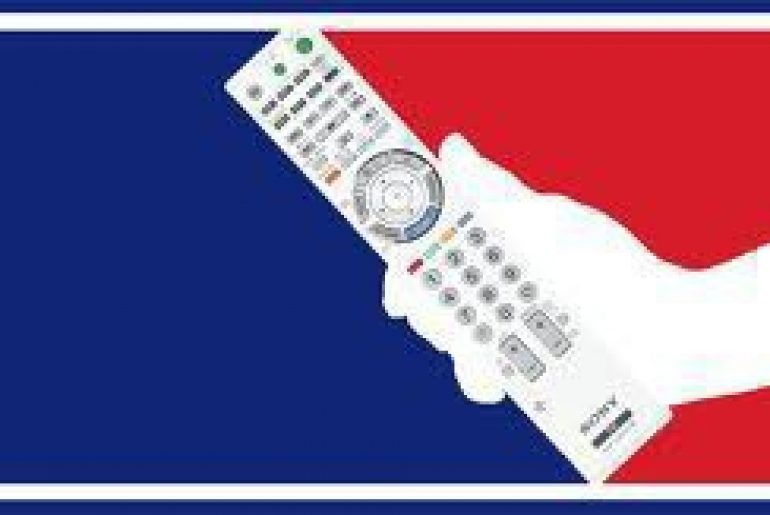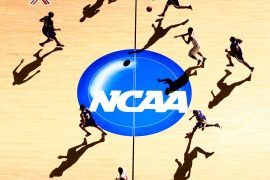Sports fans often imagine that they have a kind of partnership with their favorite teams: their cheers make a crucial difference in those final moments of the game; their ticket purchases make the team economically viable and thus competitive; their commitment to sameness protects the team against the forces of ‘political correctness’, ‘candy-assness’ and other meddling. So, when a star athlete jumps ship or a team leaves town or the team itself reaches a plateau and begins to appeal to a new audience, the old fans feel betrayed and neglected. The fan has in a sense lived vicariously through the team and its players – something I call ‘vicarious ballin’ – which I think explains some of the push back Michael Sam has gotten since coming out of the closet and pursuing a career in the NFL.
Reactions to the Sam announcement have of course run the gamut from outright hostility to unmitigated support, but the responses that I’ve found most peculiar have come from football fans who profess to have no problem with Sam being gay, but who worry about his motives and those of the media, the league and the gay ‘agenda’. These fans aren’t hostile to Sam, but they want to make sure he does not have some hidden objective; that he’s not taking advantage of the league’s largesse; that he won’t distract from the game itself and the more important business of throwing and catching balls. What’s peculiar about all of this concern and skepticism is not its presence, but its absence in all of the years before Sam.
The same fans that now worry that Sam is a distraction are perfectly fine with all kinds of football related stunts and cross promotional tie-ins. The same fans who have to be monitored like children at games, lest they get too drunk, too rowdy and too vulgar for a ‘family environment’ worry about the message having a gay player sends children. The same fans that worry that Michael Sam is bringing politics into football are perfectly happy with their local team using tax dollars to build stadiums or pay executives. If they were as concerned and skeptical of the game as they are of Sam, they might do a better job of preserving some of the things that make sports important to them. Families might be able to afford games. They might go without fear of their children hearing all kinds of new profanity. The incentives that lead to prescription and performance enhancing drug abuse might be examined as well. The fan might also take a closer look at himself and the role of sports in his life and community.
Some of the folks who worry most about distractions from sports should really be concerned about the distraction of sports. Their tax dollars might be better spent on local schools rather than retrofitting the old stadium. Rather than gorging on hot wings, beer and cheesy bread while watching the Pros, the fan’s time might be better spent exercising with other mediocre athletes in an intramural league. The fan’s children might also benefit. His daughter’s dreams of becoming a cheerleader and performing acrobatics for minimum wage might be put in proper perspective, as might his son’s dreams of gridiron glory in spite of an obvious lack of talent. If anything, Sam might distract them from the game long enough to learn about something(s) more important. For that, Sam should be credited.
He should be credited for something else too. The NFL itself is a multi-billion dollar enterprise, masquerading as a non-profit and tax exempt entity. The player’s association is by many accounts an inept bureaucracy that sacrifices the needs of aging and vulnerable players for the benefit of young, able-bodied ones. Sports media fixates on individual scandals while saying very little about top-level corruption. Michael Sam wants to play football and get paid to do it. When we compare his motivations to the aforementioned, Sams is the most transparent actor in the whole farce.
The skepticism and concern expressed by fans over Sam has nothing to do with Michael Sam and everything to do with a fear that sports is bowing to political and economic pressure – pressure that will make the traditional fan less significant. In reality professional sports leagues are some of the main proponents and beneficiaries of this pressure a fact fans often ignore– not because it’s too complex an idea – but because the fan is in the midst of a fantasy. He is living vicariously through a game that in reality left him behind long ago.
[/et_pb_text][/et_pb_column][/et_pb_row][/et_pb_section]




1 Comment
Shawn you kicked it out of the stadium!. This piece is thought-filled and well argued. I love the roch metaphors and adjective. You have skills my brother. I’m reposting this.